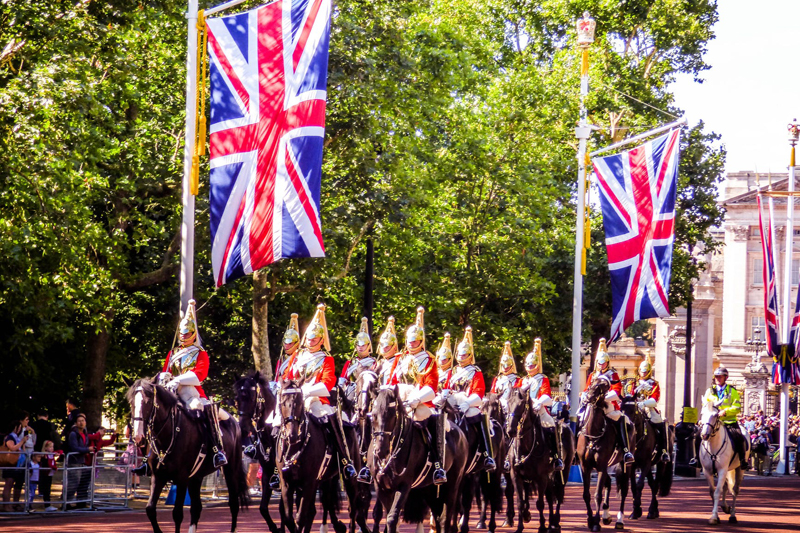Jerusalem by William Blake

You may have read the poem or sung the hymn Jerusalem. You may have heard the name, of the poet/artist or poem/song. I have always enjoyed Blake’s poetry, and my inspiration for this article was helping a friend learn the words for Jerusalem which they then went on to sing at a concert. Hubert Parry composed the music we use for the song now during the First World War when English patriotism was high.
This poem was actually written as part of a prelude/preface to a longer work – Milton - and when first published did not have a title.
Jerusalem alludes to the theory that a young Jesus visited England with his great uncle Joseph of Arimathea. The first eight lines of the poem form four questions, the first being:
And did those feet in ancient time
Walk upon England's mountains green?
Whilst Blake’s questioning indicates he does not wholly subscribe to the idea that Jesus did visit England, the poem exquisitely explores the possibility that England could, once, have been heaven on earth (Jerusalem) and/or will be so in the future. Blake moves from England’s mountains green to her pleasant pastures to her clouded hills as the poem darkens – perhaps a reference to, amongst other hills, Glastonbury Tor. Joseph of Arimathea is said to have planted the Glastonbury Thorn – a hawthorn tree believed to flower twice a year in memory of Jesus’ birth at Christmas and resurrection at Easter.
The fourth question Blake asks has both political and religious overtones:
And was Jerusalem builded here,
Amongst these dark Satanic Mills?
The Satanic Mills are usually taken to mean the mills of the Industrial Revolution, a movement which brought an influx of people to towns and cities to work in frequently harsh conditions. It has been suggested that Blake was specifically referring to the Albion Flour Mills (Albion being an ancient name for England – the Scottish Gaelic name for Scotland, Alba, comes from the same root).
In the next part of the poem Blake asks for his bow of burning gold and arrows of desire.
Bring me my Spear, O clouds unfold!
Bring me my Chariot of fire.
The singing of these lines often reaches a crescendo before music quiets again. The film Chariots of Fire (1981) pays homage to Blake’s poem in both the film title and soundtrack.
Some claim that Jerusalem holds the status of an English National Anthem so widely is it loved and enjoyed by people of all ages and backgrounds. It is often sung at sporting events and political conferences. Being part of a crowd of people singing Jerusalem is a wonderful feeling as the music swells, fades and rises to its final glory -
Till we have built Jerusalem,
In England’s green and pleasant land.
Jerusalem (William Blake and H. H. Parry)
William Blake's "Jerusalem" Explained: The First Full-Scale Line By Line Analysis
This poem was actually written as part of a prelude/preface to a longer work – Milton - and when first published did not have a title.
Jerusalem alludes to the theory that a young Jesus visited England with his great uncle Joseph of Arimathea. The first eight lines of the poem form four questions, the first being:
And did those feet in ancient time
Walk upon England's mountains green?
Whilst Blake’s questioning indicates he does not wholly subscribe to the idea that Jesus did visit England, the poem exquisitely explores the possibility that England could, once, have been heaven on earth (Jerusalem) and/or will be so in the future. Blake moves from England’s mountains green to her pleasant pastures to her clouded hills as the poem darkens – perhaps a reference to, amongst other hills, Glastonbury Tor. Joseph of Arimathea is said to have planted the Glastonbury Thorn – a hawthorn tree believed to flower twice a year in memory of Jesus’ birth at Christmas and resurrection at Easter.
The fourth question Blake asks has both political and religious overtones:
And was Jerusalem builded here,
Amongst these dark Satanic Mills?
The Satanic Mills are usually taken to mean the mills of the Industrial Revolution, a movement which brought an influx of people to towns and cities to work in frequently harsh conditions. It has been suggested that Blake was specifically referring to the Albion Flour Mills (Albion being an ancient name for England – the Scottish Gaelic name for Scotland, Alba, comes from the same root).
In the next part of the poem Blake asks for his bow of burning gold and arrows of desire.
Bring me my Spear, O clouds unfold!
Bring me my Chariot of fire.
The singing of these lines often reaches a crescendo before music quiets again. The film Chariots of Fire (1981) pays homage to Blake’s poem in both the film title and soundtrack.
Some claim that Jerusalem holds the status of an English National Anthem so widely is it loved and enjoyed by people of all ages and backgrounds. It is often sung at sporting events and political conferences. Being part of a crowd of people singing Jerusalem is a wonderful feeling as the music swells, fades and rises to its final glory -
Till we have built Jerusalem,
In England’s green and pleasant land.
Jerusalem (William Blake and H. H. Parry)
William Blake's "Jerusalem" Explained: The First Full-Scale Line By Line Analysis
You Should Also Read:
St George's Day
Isambard Kingdom Brunel
The Royal Wedding William and Kate

Related Articles
Editor's Picks Articles
Top Ten Articles
Previous Features
Site Map
Content copyright © 2023 by Asha Sahni. All rights reserved.
This content was written by Asha Sahni. If you wish to use this content in any manner, you need written permission. Contact Sarah V Monaghan for details.


